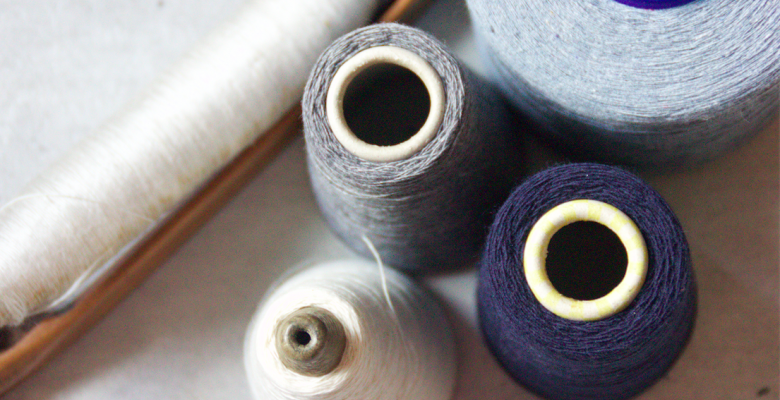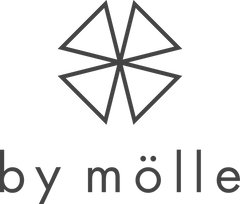Materials produced with respect for the earth are crucial when it comes to sustainability. Our aim is to reduce the environmental impact by using only natural fibers in our collection like linen, hemp and pure wool. Safe for you, and safe for the planet.
100% European flaxAll our linens are made by exceptional artisans using only highest quality natural flax. Grown, woven and sewn in Europe's best known regions for their expertise in linen. Linen is 100% natural and incredibly comfortable. Cool in summer and warm in winter. The more you use it, the softer it gets. Linen fabric is made from flax, Linum Usitatissimum. It is the only plant textile fibre that originates from Europe. From farming and harvesting, to weaving and finishing, linen fabric is one of the most environmentally friendly fibers in the world. It can’t be relocated and needs the Atlantic sea climate to grow. Flax doesn’t need any irrigation or pesticides and is a true carbon well. Everything from the flax plant is used; the seeds in bread and for linseed oil, the fibers for linen, ropes, paper and insulation materials. For superior quality we use the best flax that grows on the western European Atlantic coast. After harvesting the flax goes to historic makers, undoubtedly the most highly regarded linen producers in Europe. The mills take care of all the stages in the process of creating our linen fabric, from flax to fabric.
The chambray linen fabric is yarn-dyed, which gives it a beautiful color and structure. You see and feel the craftsmanship in our fine woven fabrics in the pure natural shades. Over 5000 years ago the Egyptians called linen woven moonlight, because of its beauty, softness and unique medicinal properties. Linen is hypo-allergenic and anti-bacterial, everything you need for a deep and healthy sleep and sweet dreams.  pure wool
pure wool
Our woolen throws and blankets are natural, warm and timeless. The natural shades of the pure wool are the inspiration for our designs. For our grey throws we use for example the wool of the Gotland sheep, an ancient Nordic breed. The amazingly soft merino woolen throws are woven for us by a traditional Italian wool mill that is located in the mountains near Bergamo. For these throws we use the finest, Woolmark certified merino wool, guaranteed mueseling free.
mohair
Mohair is one of the finest and most exclusive natural materials. The soft, silk-like yarn is spun from the hair of the Angora goat. Anyone who sees an angora goat for the first time often thinks it is a sheep. The wooly hair of the goat is long and curly, lush around the head and body. The angora goat has no molting, so mohair continues to grow. The goat is shaved twice a year, in spring and autumn. The name Mohair given to the fleece of angora goats, is derived from the Arabic word Mukhaya which means 'cloth of bright lustrous goat hair'. The angora goat is an ancient breed. Mosaics of the use of goat hair for textiles dating back as early as 2500 BC.
Mohair is known for its durability and softness. Wonderfully thick, warm and soft with a special satin gloss like silk. Mohair is super light, and famous for its versatility: cool in the summer, warm in the winter. The wool does not itch or irritate the skin. Our mohair throws and blankets are handwoven in Europe by a traditional, family run mill that is certified on animal friendly practices and sustainable production.  merino wool
merino wool
Merino wool comes from the merino sheep: one of the oldest and strongest sheep breeds in the world. Originally from Spain and first discovered in the 12th century. Merino sheep are particularly good at surviving large temperature differences. They can withstand the harsh cold climate but also high temperatures. The wool is super soft and doesn't itch or irritate your skin. Ideal for our plaids. This is because merino wool has a higher density than regular wool. All our merino wool is obtained in an animal-friendly way. The merino sheep's coat never stops growing.
kapok
Kapok is a soft fiber that is 100% vegan. Since kapok trees only grow in the wild, kapok is a natural and eco-friendly filling. Kapok has a waxy layer and is therefore hypo-allergenic. So no chance for dust mites. Because of this layer, pillows with kapok filling cannot be washed. Furthermore, it is odorless, moisture regulating, breathable and not treated with pesticides.
recycled denim
In the Netherlands we throw away 210.000 kilotons textiles every year. We want to change this and give textiles a second life by removing zips and buttons and spinning the fibre to a soft, high quality yarn that we use for our recycled denim collection. The pieces are selected by color, reduced to fibers and spun to beautiful yarn that we use for our home textiles and wraps. Eco-friendly, a good alternative for cotton and a great way to dress your home. responsibly recycled down
responsibly recycled down
Down is light and airy and insulates and ventilates the best. Down is always mixed with small feathers. That is why the down content is always stated. A real down duvet consists of at least 65% down. A percentage of 95% is the maximum and also the most expensive. The more down, the lighter the duvet. Good down duvets are lightweight and warm at the same time. Down is the soft part of a bird's plumage, that which is closest to the bird's skin. Down usually comes from geese and ducks. Nice to know: the colder the region where these animals came from, the warmer your duvet. A down comforter has a self-regulating ability; good quality down can adapt to the climate and is cool in summer and warm in winter.
“Recycling – to break something down into raw materials that are then used to make new items. Recycling reduces waste, saves energy, and reduces the consumption of raw materials.”
